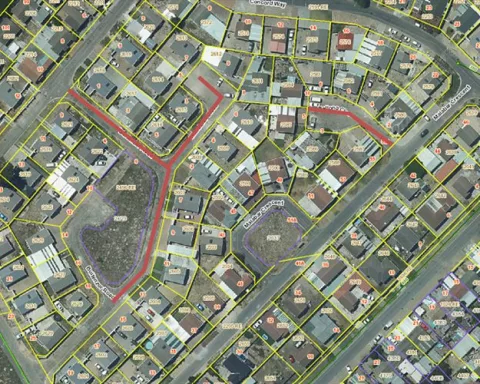Alderman JP Smith of Cape Town is advocating for responsible digital behaviour when disclosing incidents to aid the legal process. Sharing suspect images online can weaken the case against the suspect and jeopardize the legal process. Smith’s call for action is not a plea for silence, but for prudent judgement, and refraining from sharing suspect images can help ensure justice is effectively and fairly administered. In this digital era, the power of a click must be exercised judiciously to maintain a fair and equitable society, both online and offline.
What is the importance of responsible digital behaviour in law enforcement?
Responsible digital behaviour plays a significant role in the execution of justice. Sharing suspect images online can jeopardize the legal process, potentially weakening the case against the suspect. By exercising caution and refraining from premature public disclosure, the public can aid the legal process and help ensure justice is effectively and fairly administered.
In the complex web of the digital sphere, we live in a world where clicks and shares wield significant influence. An echo from Cape Town, South Africa has been heard worldwide – Alderman JP Smith, a member of the city’s Safety and Security Committee, is advocating for responsible use of the internet when disclosing incidents.
Cape Town’s Digital Revolution and Its Impact on Law Enforcement
In the city where the mountain meets the ocean, a recent incident demonstrated the significant role that responsible digital behaviour plays in the execution of justice. Early one morning, an online chat forum was abuzz with news of a group of hikers being harassed by a person on a trail. A description of the alleged culprit was rapidly shared, mobilising the nearest law enforcement officers to the location.
The Tourism Law Enforcement Unit, tasked with maintaining the safety and tranquillity of Cape Town’s natural beauty, responded to the call. The officers combed the trails and surrounding areas, eventually finding the alleged wrongdoer, who by then was in the custody of a private security agent. Following his arrest, the suspect was taken to the Cape Town Central Police Station, ready to face the full force of the law.
Responsible Use of Digital Platforms in Law Enforcement
Although active community participation in ensuring safety and security is invaluable, Alderman Smith emphasises the importance of exercising caution when posting images or revealing the identity of suspects online. Despite the intention to aid the cause of justice, such actions may inadvertently hinder the legal process.
Sharing a suspect’s image online can jeopardise the integrity of official identity parades, crucial for linking suspects to previous offences. If such evidence is disqualified due to premature public disclosure, the ensuing case against the suspect may be significantly weakened. This could potentially shield the suspect from facing the full consequences of their past actions.
Smith’s call for action is not a plea for silence, but for prudent judgement. By refraining from sharing suspect images, the public can aid the legal process. This collective effort can help ensure justice is not just an abstract idea, but a tangible outcome, effectively and fairly administered.
Digital Responsibility and Its Impact on Society
Smith’s appeal has a distinct resonance, underpinned by the recognition that the digital world is not just a virtual space, but is intrinsically linked with our physical reality. Every shared image, every revealed detail, can have unintended consequences, potentially disrupting the balance of justice.
In the heart of Cape Town, amid its bustling streets and serene trails, a narrative is unfolding. It’s not just the story of a city’s endeavour to safeguard its residents but also of a society learning to harness the power of the digital age responsibly. The Internet, once an abstract entity, has become an integral part of our daily lives, moulding and being moulded by our actions.
In this digital era, where the boundary between the virtual and the real is blurred, Alderman Smith’s message serves as a timely reminder. Our online behaviour, whether well-intentioned or not, can have real-world implications, particularly in the domain of law and justice.
Ultimately, our ability to navigate the digital maze responsibly, abstaining from actions that could hinder justice, reflects our collective commitment to maintaining a fair and equitable society, both online and offline. As we navigate the digital age, let these stories from Cape Town steer us towards a path of enlightenment, where the power of a click is exercised judiciously, and the pursuit of justice remains unobstructed.
1. Why is responsible digital behaviour important in law enforcement?
Responsible digital behaviour is crucial in law enforcement as sharing suspect images online can weaken the case against the suspect and jeopardize the legal process. By exercising caution and refraining from premature public disclosure, the public can aid the legal process and help ensure justice is effectively and fairly administered.
2. How can sharing suspect images online potentially hinder the legal process?
Sharing suspect images online can jeopardise the integrity of official identity parades, crucial for linking suspects to previous offences. If such evidence is disqualified due to premature public disclosure, the ensuing case against the suspect may be significantly weakened. This could potentially shield the suspect from facing the full consequences of their past actions.
3. What is the Tourism Law Enforcement Unit in Cape Town?
The Tourism Law Enforcement Unit is a team tasked with maintaining the safety and tranquillity of Cape Town’s natural beauty. They responded to a recent incident where a group of hikers were allegedly harassed on a trail in Cape Town.
4. What is Alderman JP Smith’s message regarding digital behaviour?
Alderman JP Smith is advocating for responsible use of the internet when disclosing incidents to aid the legal process. Smith’s message is not a plea for silence, but for prudent judgement, and refraining from sharing suspect images can help ensure justice is effectively and fairly administered.
5. How can the public aid the legal process while exercising caution in digital behaviour?
The public can aid the legal process by refraining from sharing suspect images online and exercising caution when posting images or revealing the identity of suspects. This collective effort can help ensure justice is effectively and fairly administered.
6. Why is it important to exercise digital responsibility in today’s society?
In today’s society, the digital world is not just a virtual space, but is intrinsically linked with our physical reality. Every shared image, every revealed detail, can have unintended consequences, potentially disrupting the balance of justice. Ultimately, our ability to navigate the digital maze responsibly reflects our collective commitment to maintaining a fair and equitable society, both online and offline.












